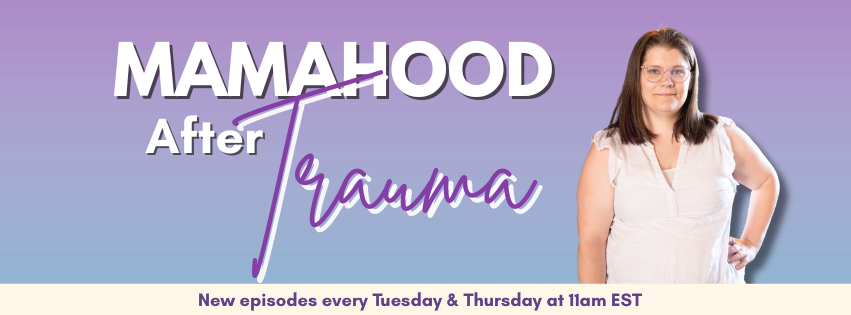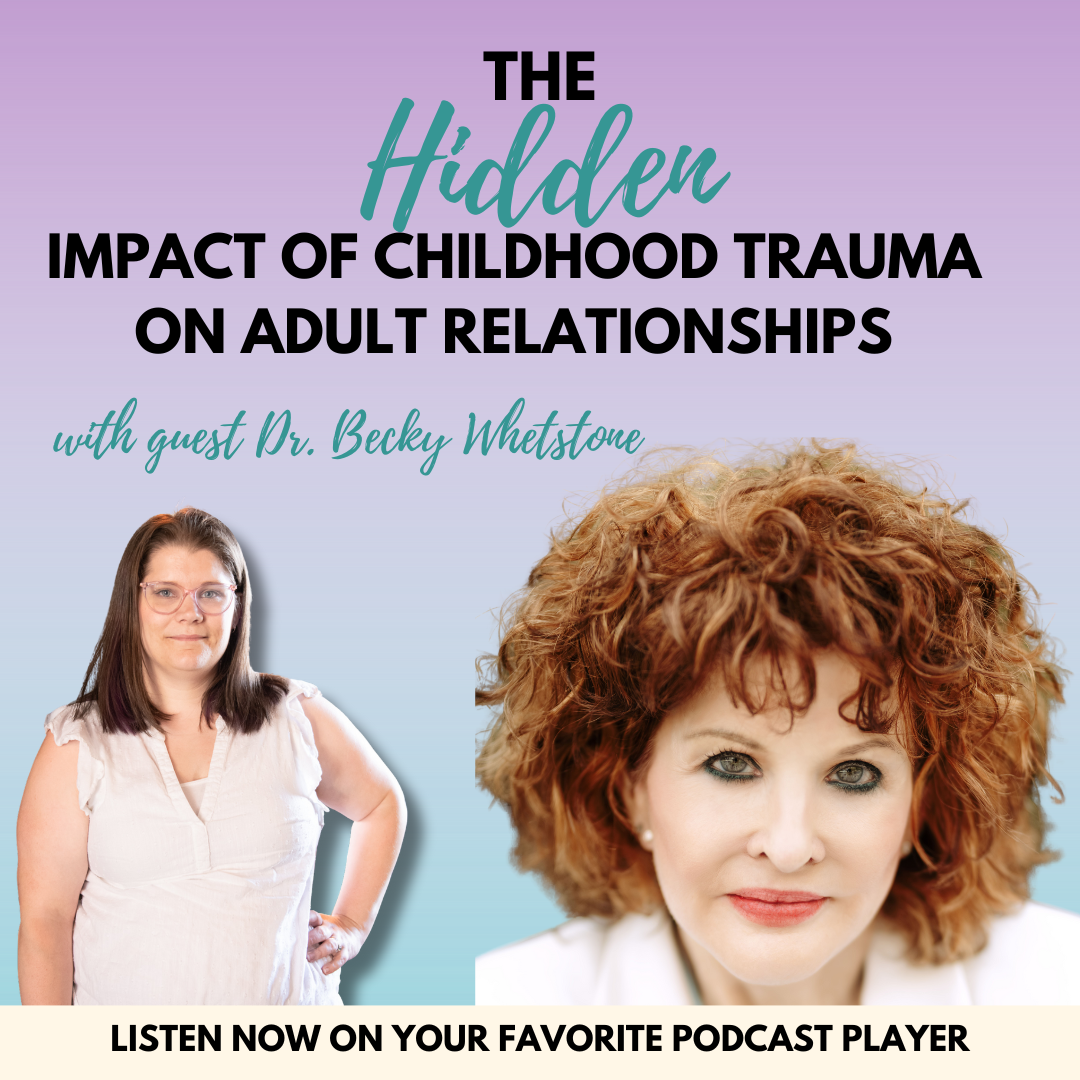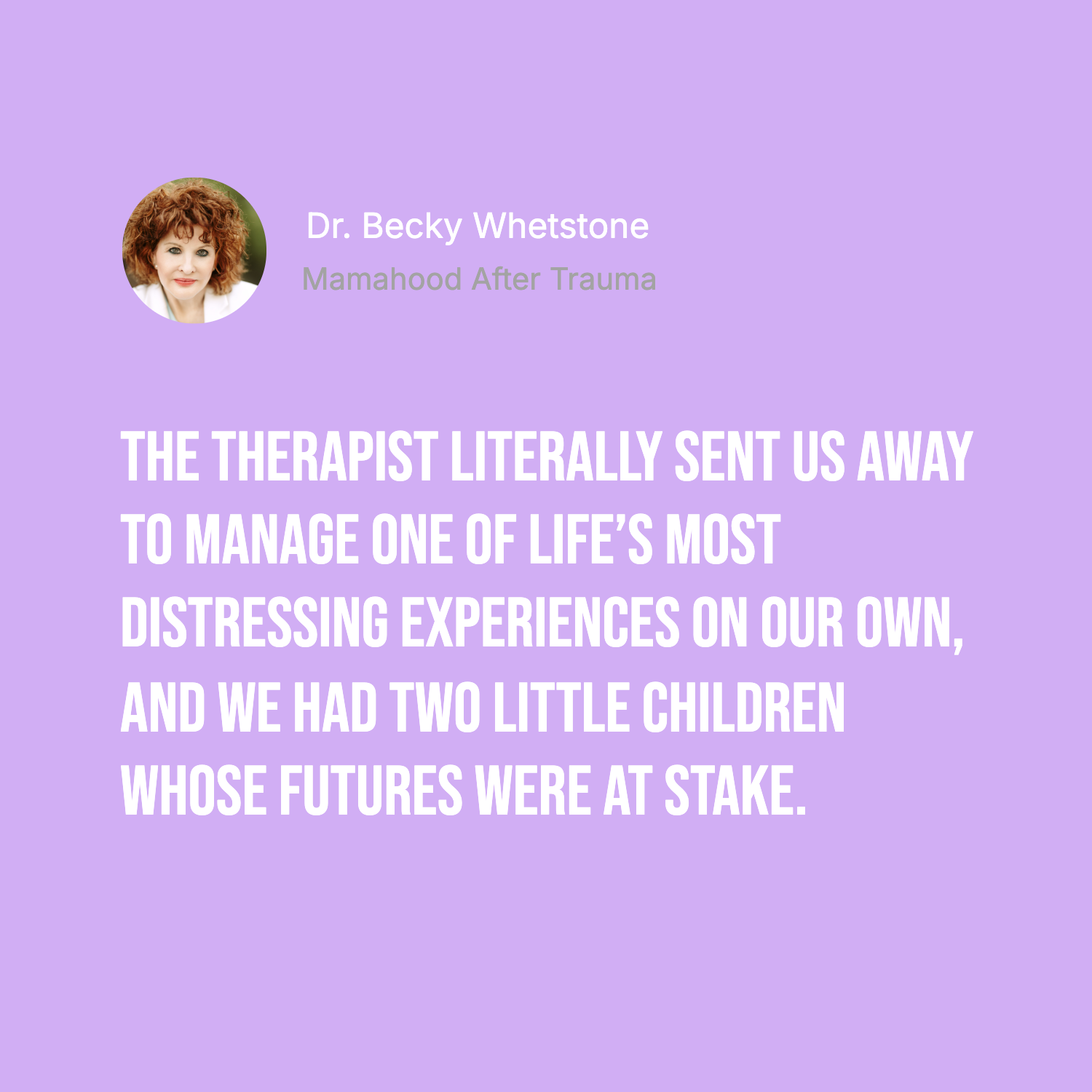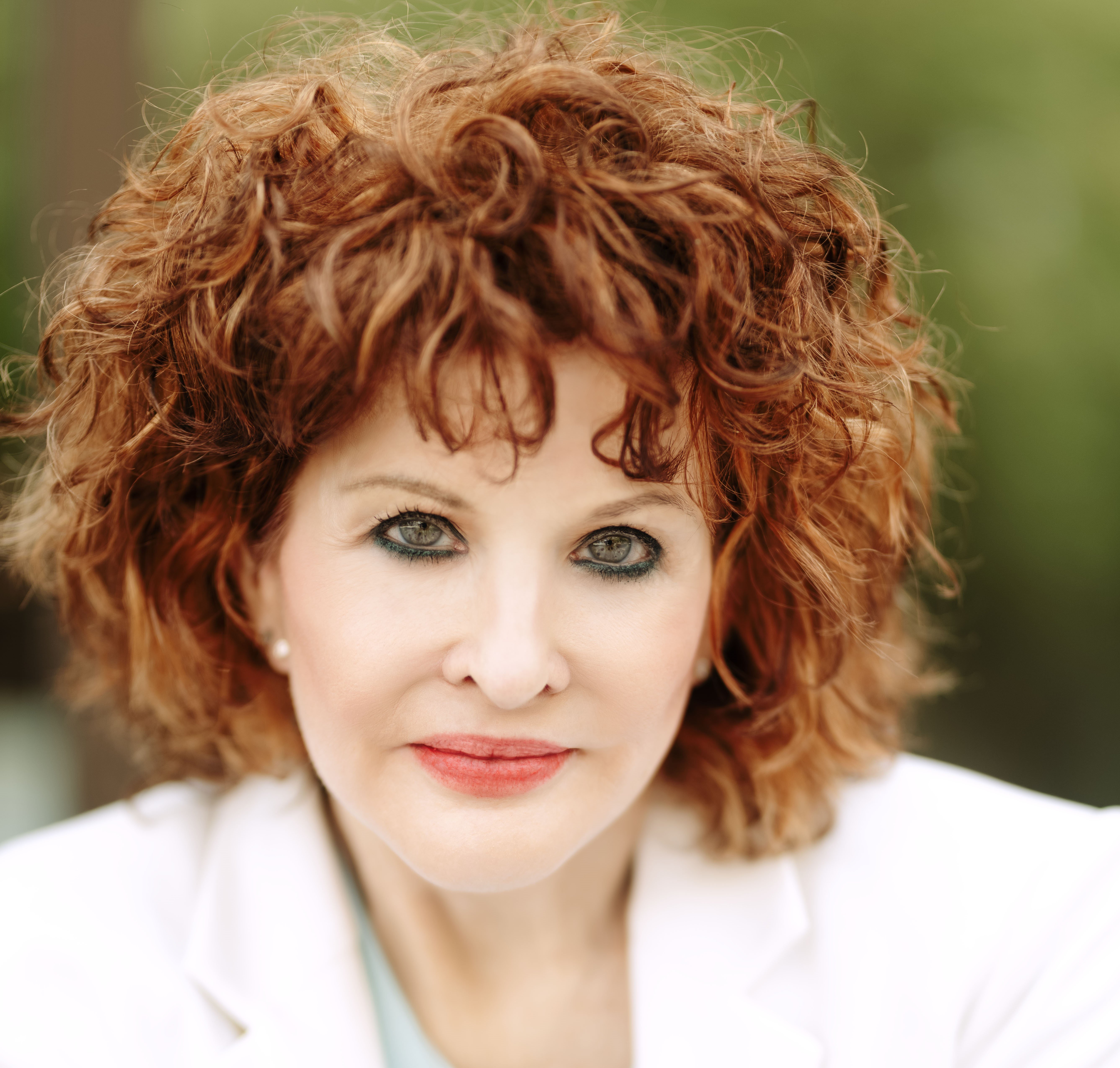
The Hidden Impact of Childhood Trauma on Adult Relationships
In this inspiring episode of Mamahood After Trauma, host Emily welcomes Dr. Becky Whetstone, a marriage crisis manager and therapist.
Dr. Becky shares her personal journey from experiencing a marriage crisis to pioneering trauma-informed marriage therapy. She discusses the stages of marriage decline, the profound impact of trauma on relationships, and the critical gaps in traditional marriage therapy training.
Listeners gain practical insights into healing, emotional growth, and recommended resources for trauma recovery. Dr. Becky’s mission to transform marriage therapy and empower families offers hope and actionable guidance for anyone navigating relationship challenges after trauma.

Table of Contents
Introduction and Welcome (00:00:00) Emily introduces the podcast, offers a free resource, and welcomes Dr. Becky as the guest.
Dr. Becky's Background and Marriage Crisis Story (00:01:10) Dr. Becky distinguishes herself, shares her personal marriage crisis, and how it led to her career focus.
Therapist Training Gaps and Dr. Becky's Mission (00:03:47) Dr. Becky discusses the lack of marriage crisis training for therapists and her efforts to fill this void.
Stages of Marriage Decline (00:06:46) Dr. Becky outlines the five stages of marriage decline and the trauma involved in marriage crises.
Normalizing Trauma in Marriage Crisis (00:08:51) She explains how marriage crisis is traumatizing, normalizes the experience, and emphasizes the importance of knowledge.
Advocating for Change in Therapy Training (00:10:29) Dr. Becky describes her advocacy to improve marriage crisis training among therapists and her outreach efforts.
Trauma's Impact on Relationships (00:11:20) Discussion on how childhood trauma affects adult relationships and brain function.
Big T and Small t Trauma (00:12:00) Emily and Dr. Becky differentiate between obvious and subtle childhood traumas and their lifelong effects.
Recognizing and Addressing Implicit Trauma (00:12:45) Dr. Becky explains implicit trauma, its signs in adult relationships, and how it manifests.
Prenatal and Birth Trauma (00:14:37) They discuss trauma experienced in utero or at birth and its lasting impact.
Lack of Relationship Skills Education (00:15:58) Dr. Becky laments the absence of relationship skills training in society and her efforts to educate clients.
Tips for Improving Relationships (00:17:32) Dr. Becky recommends resources by Pia Mellody and Terry Real for trauma and relationship healing.
How to Connect with Dr. Becky (00:20:18) Dr. Becky shares her website, blog, and weekly drop-in group for further support.
Closing and Outro (00:21:19) Emily thanks Dr. Becky, recaps resources, and closes the episode.
Healing Relationships After Trauma: Expert Insights from Dr. Becky Whetstone
Motherhood After Trauma is a podcast dedicated to helping mothers heal, grow, and parent with compassion after experiencing trauma. In a recent episode, host Emily sat down with Dr. Becky Whetstone—a marriage crisis manager and therapist specializing in trauma and relationships. Their conversation was a masterclass in understanding the deep connections between trauma, emotional health, and the health of our most intimate relationships.
This blog post distills the main themes and actionable advice from their discussion, offering a comprehensive guide for anyone navigating marriage crises, trauma recovery, or simply seeking to build healthier relationships.
Dr. Becky’s Journey: From Personal Crisis to Professional Calling
Dr. Becky Whetstone’s path to becoming a marriage crisis manager began with her own marriage crisis in the early 1990s. After a disappointing experience with a marriage therapist who was unable to help her and her husband navigate their crisis, Dr. Becky became determined to fill the void she saw in marriage therapy training. She pursued a PhD, conducted extensive research, and has spent over 20 years helping couples in crisis—often saving marriages that might otherwise have ended prematurely.
Key Insight:Personal experience, when combined with rigorous training and research, can lead to powerful, empathetic expertise. Dr. Becky’s story is a testament to the value of lived experience in shaping effective therapeutic approaches.
The Hidden Impact of Trauma on Relationships
Dr. Becky emphasizes that almost everyone brings trauma—both “big T” (major events) and “small t” (subtle, cumulative wounds)—into their adult relationships. These traumas often manifest as emotional immaturity, reactivity, and difficulty forming healthy attachments.
How Trauma Shows Up:
- Emotional Triggers:
When a partner’s words or actions provoke an outsized emotional response, it often points to unresolved childhood trauma. - Fight, Flight, or Freeze:
If you find yourself shutting down, lashing out, or wanting to escape during conflict, your nervous system may be reacting to old wounds. - Implicit Memories:
Many traumas are not consciously remembered but are stored in the body and nervous system, influencing behavior and emotional responses.
Expert Insight:
Even those who believe they had a “normal” childhood often carry hidden traumas—moments of feeling not enough, not chosen, or not safe. These can be just as impactful as more obvious traumas.
Why Traditional Marriage Therapy Often Fails
Dr. Becky’s research revealed a critical gap: most marriage and family therapists are not adequately trained to handle couples in acute crisis. Many therapists focus on communication skills or conflict resolution, but lack the tools to address the underlying trauma and emotional dysregulation that drive marital breakdowns.
Common Pitfalls:
- Lack of Crisis Management Skills:
Therapists may send couples away if they’re not “motivated” to work on the marriage, missing the opportunity to intervene at a crucial moment. - Ignoring Trauma:
Without addressing the root causes—often trauma-related—therapy can feel superficial or ineffective. - One-Size-Fits-All Approaches:
Standard techniques may not work for couples in deep distress or with complex trauma histories.
Dr. Becky’s Solution:
A directive, educational, and trauma-informed approach that normalizes the crisis, provides clear information, and teaches practical skills for emotional healing and relationship repair.
Understanding the Five Stages of Marriage Decline
Dr. Becky outlines a nuanced, five-stage model of marriage decline. Recognizing these stages can help couples identify where they are and what interventions might be most effective.
The Five Stages:
- Disillusionment:
- A vague sense of unhappiness or disappointment.
- Often dismissed as a phase, but it’s the first warning sign.
- Serious Unhappiness:
- The unhappiness persists and deepens.
- Thoughts of divorce may arise, but are resisted for various reasons (children, finances, fear).
- Distancing:
- Emotional and physical withdrawal.
- Partners spend more time apart, develop new hobbies, or even have affairs.
- The Breaking Point:
- A triggering event (big or small) that feels like the final straw.
- The relationship dynamic changes irreversibly.
- Death of the Marriage:
- The marriage, as it was, is over.
- This may or may not lead to legal divorce, but the old relationship cannot be restored.
Actionable Takeaway:
If you recognize these stages in your own relationship, know that intervention is possible—especially before reaching the final stage. Early awareness is key to preventing unnecessary loss.

Actionable Tips for Healing and Growth
Dr. Becky and Emily shared several powerful, actionable strategies for anyone seeking to heal from trauma and build healthier relationships.
Tip 1: Recognize and Normalize Trauma Responses
- Acknowledge Your Experience:
Feeling overwhelmed, “crazy,” or emotionally unstable during a marriage crisis is normal. These are trauma responses, not personal failings. - Validate Your Emotions:
Give yourself permission to feel grief, anger, confusion, or fear. Suppressing these emotions only prolongs suffering. - Normalize Change:
Major life transitions—like a marriage crisis or divorce—are inherently destabilizing. Expect and accept a period of emotional upheaval.
Action Step:
When you notice a strong emotional reaction, pause and ask: “Is this about the present moment, or is it touching an old wound?” This awareness is the first step toward healing.
Tip 2: Educate Yourself with Expert Resources
- Read Foundational Books:
Dr. Becky recommends Pia Mellody’s Facing Codependence as essential reading for understanding how childhood trauma shapes adult relationships. - Explore Trauma-Informed Couples Work:
Terry Real’s Fierce Intimacy (audiobook) offers a practical, trauma-aware approach to couples therapy. - Seek Out Blogs and Podcasts:
Dr. Becky’s Medium blog and Emily’s podcast are rich sources of ongoing education and support.
Action Step:
Commit to reading or listening to one new resource each month. Knowledge is power—especially when it comes to healing trauma.
Tip 3: Develop Emotional Maturity and Relationship Skills
- Learn to Self-Regulate:
Practice calming your nervous system during conflict (deep breathing, grounding exercises, taking breaks). - Build Communication Skills:
Move beyond “I-statements” to truly understanding your own triggers and needs, and expressing them with vulnerability. - Practice Boundaries:
Healthy relationships require clear, compassionate boundaries—both with yourself and others.
Action Step:
Identify one area where you struggle (e.g., staying calm during arguments, asking for what you need) and focus on building that skill with intention.
Tip 4: Seek Directive, Trauma-Informed Support
- Find the Right Therapist:
Look for professionals who specialize in trauma and relationship crises—not just general marriage counseling. - Join Support Groups:
Dr. Becky offers low-cost, drop-in group sessions for people navigating relationship challenges. - Don’t Wait for “Motivation”:
You don’t have to be sure you want to save your marriage to seek help. The crisis itself is a valid reason to reach out.
Action Step:
If you’re in crisis, don’t go it alone. Reach out for support—even if you’re unsure what you want the outcome to be.
Recommended Resources for Deeper Healing
Connect with Dr. Becky:
https://marriagecrisismanager.com/ https://www.facebook.com/relationshipcrisismanager/ https://x.com/DoctorBecky
https://www.instagram.com/doctorbecky/ https://www.linkedin.com/in/becky-whetstone-ph-d-33866211/ https://medium.com/@doctorbecky
🎁 Start finding peace today! Get my free guide, Unlocking Peace, and discover practical steps to calm your triggers and nurture joy in your motherhood journey.
👉 Download now: https://mamahoodaftertrauma.ca/guide
About Dr. Becky Whetstone

Want to be a guest on Mamahood After Trauma? Send Emily Cleghorn a message on PodMatch, here